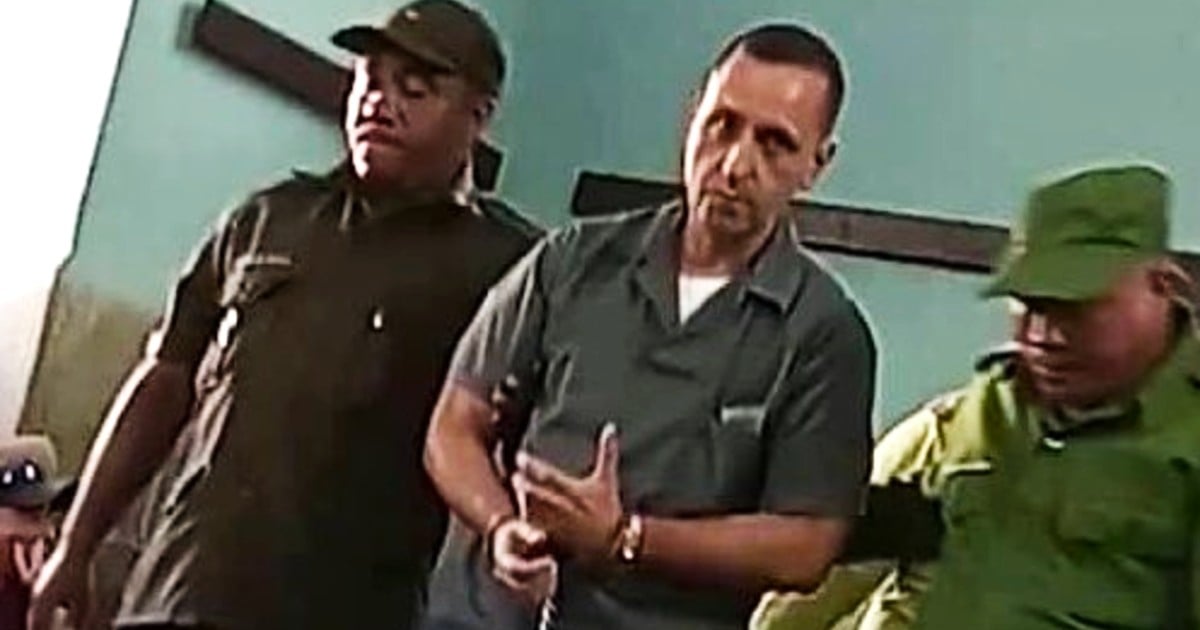Nearly thirty years behind bars, a conviction for espionage, and years shrouded in both physical and symbolic darkness define the story of Ernesto Borges Pérez. Once a Cuban official, Borges attempted to leak information to the United States, an act that led to 27 years of imprisonment in the maximum-security Combinado del Este prison. Just weeks after his release, Borges shared his journey from being a captain in the Ministry of Interior's Directorate of Counterintelligence to becoming one of Cuba's most prominent political prisoners with Martí Noticias.
The Soviet Influence and Changing Allegiances
In 1985, the Cuban government sent Borges to study in the Soviet Union. Amidst the waves of Perestroika and Glasnost, his views on communist regimes began to falter. "The Soviet openness left a profound impact on me," he admitted. Upon returning to Cuba as a lawyer and counterintelligence agent, his loyalty showed significant cracks. He realized that the system he once believed would meet the Cuban people's expectations was a failure.
"During that period, I became radicalized, reaching a point where I felt I shouldn't just resign; I needed to send a signal to the Cuban state," Borges explained. "I tried to fight within my own means, within my work environment, aiming to strike at the country's national security system."
The Attempted Espionage and Arrest
In 1998, at the age of 32, Borges attempted to pass a list of Cuban officers trained to spy in the U.S. to an American official. However, he was arrested on July 17 before the information transfer could take place. "I prepared a package containing work-related information: identities of agents I was personally training to turn into double agents, hoping to attract U.S. intelligence services to recruit them. That was my task, and that's what I tried to pass on," he detailed.
Borges added that he left the package in the garage of an American diplomat's residence in Havana, unbeknownst to the diplomat. Stressing that it was solely his initiative, he stated, "I made mistakes. I didn't fully understand the surveillance system my colleagues had on American diplomats' residences in Havana, and they intercepted the package."
Conviction and Time Behind Bars
Despite failing to complete the act, Borges was tried for attempted espionage and received a 30-year sentence, commuted from an initial death penalty. "My crime was espionage in the degree of attempt, yet I was sentenced as if I were given the death penalty," Borges has previously asserted.
His time in Cuban prisons was extensive, harsh, and deeply inhumane. He endured a decade in cells without ventilation, lacked adequate medical care for decades, and spent over 20 years unable to embrace his daughter. Now free, he suffers from cataracts, leaving him nearly blind, and a hernia requiring urgent surgery.
Support and Hopes for Cuba's Future
Borges expressed gratitude for the support received from the Catholic Church, the Vatican, journalists like Amado Gil, and Radio Martí's team for keeping his case in the spotlight. "Thank you for not forgetting us," he said. Addressing the Cuban regime, he sent a straightforward message: "I wish they would listen to the Cuban populace, the people of Cuba. I hope they realize the need to engage in dialogue with those who think differently."
As a man of faith, Borges' wish is clear: a peaceful transition with minimal trauma. His release not only reunites him with his family but also restores a long-silenced voice. A voice now free, demanding change in a country where dissent still carries a heavy price.
Understanding the Case of Ernesto Borges
What led to Ernesto Borges' imprisonment in Cuba?
Ernesto Borges was imprisoned in Cuba for attempting to pass a list of Cuban officers trained to spy in the U.S. to an American official. He was arrested before completing the information transfer and was charged with attempted espionage.
How did Ernesto Borges' views on communism change?
Borges' views on communism shifted during his time in the Soviet Union amidst the Perestroika and Glasnost reforms. The Soviet openness deeply affected him, leading to a fracture in his allegiance to the communist regime.
What support did Ernesto Borges receive during his imprisonment?
During his imprisonment, Borges received support from the Catholic Church, the Vatican, journalists like Amado Gil, and the team at Radio Martí, who helped keep his case in public attention.
